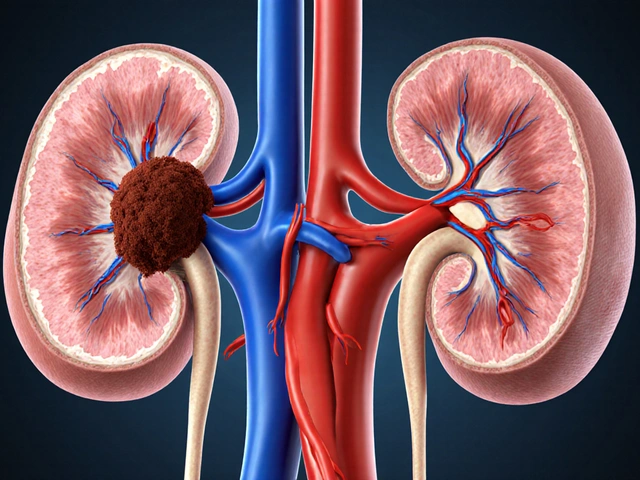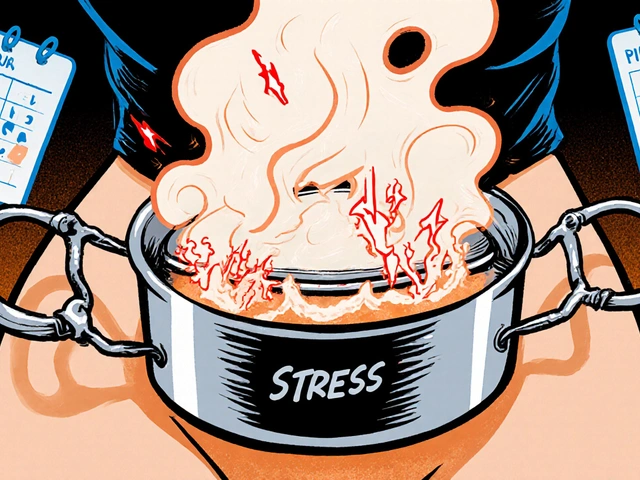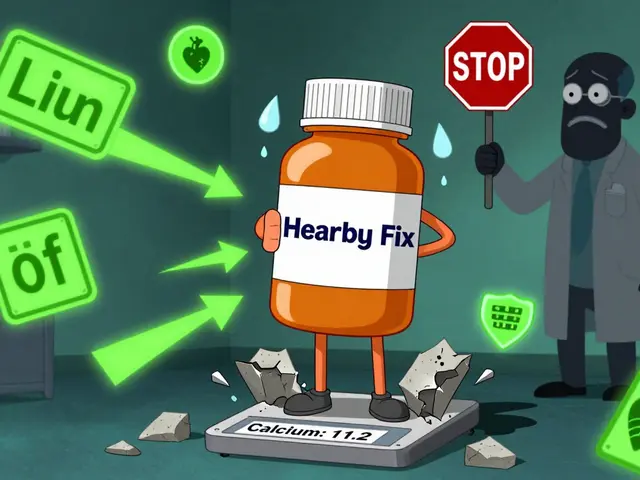Drained by lunchtime? You’re not the only one. That bone-deep tired feeling isn’t always fixed by an extra coffee. Maybe it’s not your busy schedule or lack of sleep to blame—your low energy might actually start in your gut. Our digestive system is more than just a food-processing tube. It plays a huge role in things like mood, immunity, and, yes, energy. Scientists are starting to connect the dots between gut health—and prebiotics in particular—and that mid-afternoon crash so many of us know all too well. The idea that the answer to fatigue might be hiding in your colon isn’t exactly what we all learned in high school health class.
It’s time to look past surface fixes and dig into what’s going on inside. If your gut bacteria are out of balance, you can end up feeling flat no matter how snazzy your sleep tracker is or how long you spend “unplugged.” Could eating more prebiotics really shift the needle on fatigue? There’s no magic pill, of course, but there’s some pretty fascinating evidence to consider. And if you’ve ever wondered why some people swear by fiber-rich foods or why kombucha fans seem so energetic, keep reading—this gets interesting.
How Your Gut and Energy Levels Are Connected
The gut isn’t just a silent, working engine; it’s very much in two-way communication with almost every part of you, including your brain and immune system. The number of microorganisms living in your gut—more than 100 trillion—outnumbers your own human cells. Pretty wild, right? These microbes help break down food, but they do a lot more. They create vitamins like B12 and short-chain fatty acids, which feed your gut lining and support your metabolism. If your gut community is off—maybe after antibiotics or a few stress-heavy months—fatigue can creep in.
Researchers have uncovered a ‘gut-brain axis,’ which is a fancy way of saying your digestive tract and brain are chatting all the time, swapping signals via nerves, hormones, and, yes, gut microbes. Studies show when these bacteria aren’t happy, everything from mood to motivation suffers. Some research found that people with chronic fatigue syndrome (CFS) have less diverse gut microbiomes, which means their good gut bugs are low and the troublemakers are high. There’s even evidence that certain bacteria help convert the nutrients from your food directly into energy your cells can use.
The story gets more interesting when you look at athletes. Performance studies have found that elite competitors have different balances of gut bacteria compared to non-athletes. Some strains in these athletes’ guts seem to help break down lactic acid or increase available energy—imagine being able to tweak your stamina by changing the food you eat! While not everyone is shooting for gold at the Olympics, these same gut-brain links matter if you just want to get through your day without crashing.
What Are Prebiotics and How Do They Work?
First, don’t confuse prebiotics with probiotics. Probiotics are the ’live’ bacteria found in yogurt, kefir, and dietary supplements. Prebiotics are the special types of fibers (and sometimes polyphenols) that feed those friendly bacteria—their favorite snacks. Think of prebiotics as fertilizer for your inner garden. Without enough of them, your beneficial bacteria get outcompeted, and your gut crowd becomes less diverse—and that’s when problems, including tiredness, tend to start.
Prebiotics are found in a bunch of everyday foods. Chicory root, garlic, onions, asparagus, leeks, oats, bananas—even cold potatoes. These fibers aren’t digested in your stomach or small intestine. Instead, they make it all the way to your colon, where hungry bacteria break them down, making special energy-boosting molecules (like butyrate) in the process. Butyrate in particular has gotten a lot of buzz in scientific circles. It keeps the gut wall strong and seems to help your body use energy more efficiently.
If your diet’s low in prebiotics, good bacteria can shrink while the “bad” ones—linked to inflammation and fatigue—fill the gap. Recent studies have shown that people who eat more prebiotics have a healthier balance of these bacteria and feel less sluggish. A Dutch study from 2022 found that folks who added just five grams of inulin (a common prebiotic fiber) daily for three weeks noticed better energy and mood scores. Not life-changing overnight, but it’s a real shift worth testing out for yourself.

The Science: Can Prebiotics Really Improve Energy?
It’s fair to wonder if this is just wellness hype. But the connection between prebiotic fiber and energy has gotten a ton of attention lately. Here’s where things get practical. When researchers gave healthy adults a daily prebiotic supplement, the group reported not only less daytime fatigue, but also better sleep quality. There’s a connection—good fibers seem to help friendly microbes produce more serotonin, a neurotransmitter that regulates sleep and mood.
Recent animal studies have used stressful situations (think forced exercise or irregular sleep) to test if a high-prebiotic diet can protect against energy dips and sleep disruption. In one experiment from the University of Colorado, rats eating more prebiotics endured stress better and bounced back faster than those on regular feed. Yes, rats are not humans, but the body’s stress response and sleep patterns are surprisingly similar. Human trials are still catching up, but the early results show that people who eat more prebiotic-rich foods often report fewer crashes during the day.
Even if you’re skeptical, consider this: most Western diets barely hit half the daily fiber recommendations. We need between 25 and 38 grams most days, but the average is under 16 (!). A chunk of that should come from prebiotic-rich sources. A 2024 consumer survey found that people who tracked their daily fiber noticed fewer mid-day slumps and slept better after six weeks of ramping up their intake. It’s no silver bullet, but it’s an easy test with real potential payoffs for energy levels.
| Prebiotic Food | Average Prebiotic Fiber per 100g (g) |
|---|---|
| Chicory root | 35-64 |
| Jerusalem artichoke | 16-20 |
| Garlic | 12-13 |
| Leeks | 7-8 |
| Banana (raw) | 0.3-0.7 |
| Oats | 4 |
| Asparagus | 2-3 |
Real-World Tips: How to Get More Prebiotics in Your Diet
You don’t need fancy powders or exotic roots. Boosting your prebiotic intake can be as simple as some easy grocery swaps and a little experimentation. Start slow—if you’re used to fast food and little fiber, piling on prebiotic-rich veggies all at once will leave you bloated. Your gut bugs need a week or two to adjust. Here’s how to work it in smoothly:
- Add a spoonful of inulin powder to your morning smoothie or yogurt. It’s tasteless and dissolves easily.
- Swap regular white bread for whole grain versions—look for barley or oat ingredients.
- Stir extra leeks, onions, or garlic into soups, casseroles, and stir-fries.
- Try roasting Jerusalem artichokes or asparagus as a side dish at dinner.
- Eat bananas that are slightly green—the less ripe, the more prebiotic punch.
- Cool your potatoes, pasta, or rice before eating. This “resistant starch” is a powerful prebiotic and can be used in salads or as leftovers.
- Mix up your sources—variety is key, not just more of one thing.
If you want to use a prebiotic supplement, start with half the lowest recommended dose and work up slowly. Everyone’s gut is different—some people feel changes (good or not-so-good) faster. Remember, water is your friend. Fiber absorbs moisture, so drink a little more as you boost your intake to keep digestion moving. Real energy gains, if they’re coming, will show up in a few weeks, not days.

When Prebiotics Might Not Be Enough (Or Not a Good Idea)
While prebiotics are safe for most, a few people should proceed carefully. If you have IBS (Irritable Bowel Syndrome), some fibers can set off cramping or bloating. In these cases, talk to a professional or look for low-FODMAP options—there are prebiotic foods that fit even that label. People with small intestinal bacterial overgrowth (SIBO) can flare up with some prebiotics, so figuring out what works best for your gut is personal. And if you increase prebiotic foods and still feel wiped out, don’t ignore the basics. Rule out iron deficiency, thyroid issues, or poor sleep apnea. Sometimes fatigue is bigger than what food alone can fix.
But for most healthy adults, a steady boost in prebiotic-rich foods is a low-risk, potentially high-reward experiment. If you start feeling more clear-headed, brighter in the morning, and less likely to nap at your desk, your gut might just be to thank. That’s the kind of win you can taste—literally.







Comments
MaKayla Ryan
July 24, 2025 AT 15:07 PMLet me guess-you’re one of those people who thinks eating garlic will fix your 3 a.m. panic attacks and 11 a.m. crashes? Wake up. This isn’t biohacking, it’s basic nutrition. If you’re tired, sleep more, move more, stop drinking sugar water called ‘energy drinks.’ Prebiotics won’t fix your broken lifestyle.
Sarah Khan
July 25, 2025 AT 19:12 PMThe gut-brain axis isn’t just a trendy phrase-it’s a biological reality that’s been documented since the early 2000s, though mainstream media only caught on because influencers started posting about kombucha. The real insight here isn’t that prebiotics boost energy-it’s that modern diets systematically starve our microbial ecosystems of complexity, leading to systemic dysregulation. Butyrate production, microbial diversity, and SCFA signaling are all measurable factors in metabolic efficiency, and yes, they correlate with subjective energy levels. The fact that we’re still treating fatigue as a behavioral problem rather than a microbiome issue is the real tragedy.
Kelly Library Nook
July 27, 2025 AT 10:00 AMCorrelation is not causation. The Dutch study cited used a self-reported energy scale with no objective biomarkers. The sample size was under 50. No control for sleep hygiene, caffeine intake, or stress levels. This is pseudoscience dressed in academic clothing. If you want to fix fatigue, get a full metabolic panel-not a fiber supplement.
raja gopal
July 28, 2025 AT 05:23 AMI used to be exhausted all the time. Then I started eating more onions, garlic, and cooled rice. Not because I read a study-but because my grandma did it. Two months later, I stopped needing naps. Not magic. Just food. You don’t need to overthink it.
Orion Rentals
July 29, 2025 AT 18:07 PMWhile the article presents a compelling narrative grounded in emerging microbiological research, it is imperative to acknowledge the methodological limitations of current human trials. The majority of studies referenced employ small, non-diverse cohorts, lack longitudinal follow-up, and often conflate dietary fiber intake with specific prebiotic compounds. Furthermore, the biochemical pathways linking butyrate production to central nervous system energy regulation remain incompletely characterized. A more rigorous discourse would contextualize these findings within the broader framework of nutritional genomics and individualized microbiome profiling.
Keith Avery
July 31, 2025 AT 05:58 AMActually, the real energy boost comes from ketosis. Prebiotics are just fiber. Fiber is filler. You think your gut bugs are running your metabolism? Nah. Your liver is. Your mitochondria are. Your thyroid is. Not some bacteria eating your bananas. This whole ‘gut is your second brain’ thing is just marketing for probiotic gummies.
Faye Woesthuis
August 2, 2025 AT 04:44 AMYou’re all just chasing wellness fads while ignoring real health. Eat meat. Lift weights. Sleep 8 hours. Stop pretending your gut is a magic fairy.
Kelly Yanke Deltener
August 3, 2025 AT 18:42 PMMy therapist told me my gut was screaming for love. I started eating roasted asparagus every night with olive oil and sea salt. I cry less now. And I don’t nap after lunch. Maybe we’re not broken. Maybe we’re just starved of good food and quiet moments.